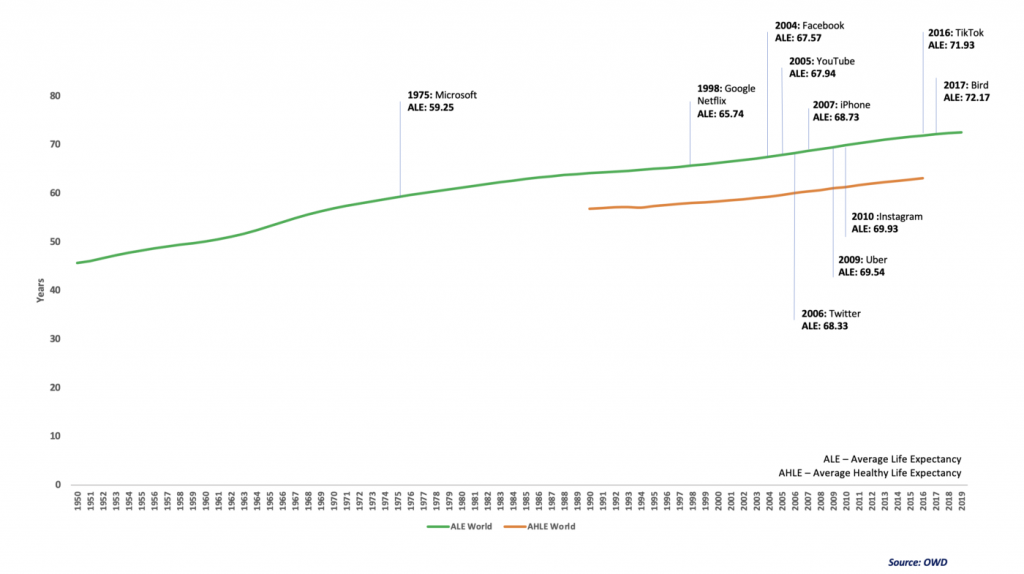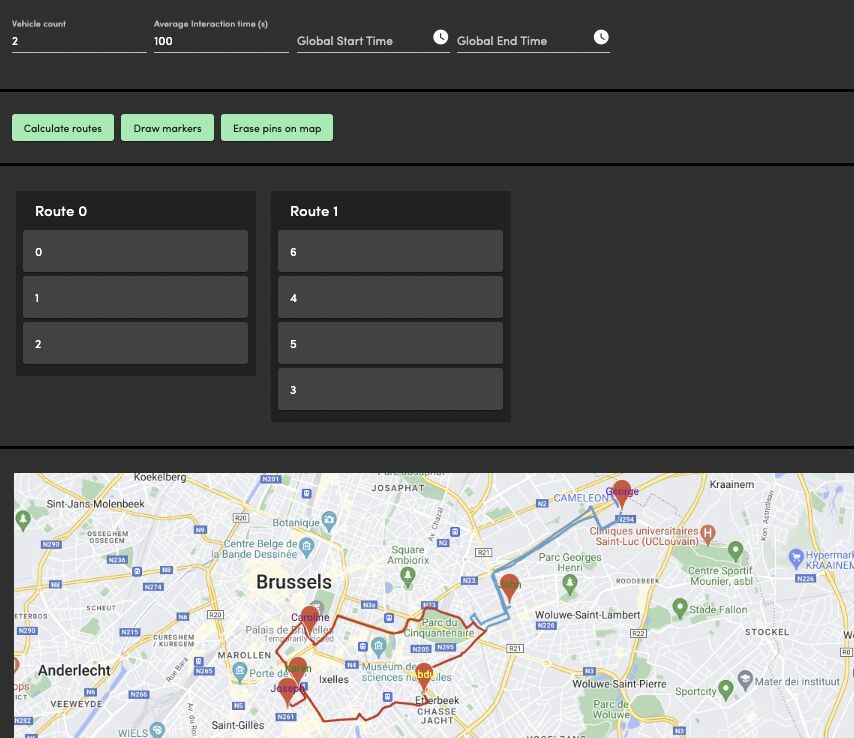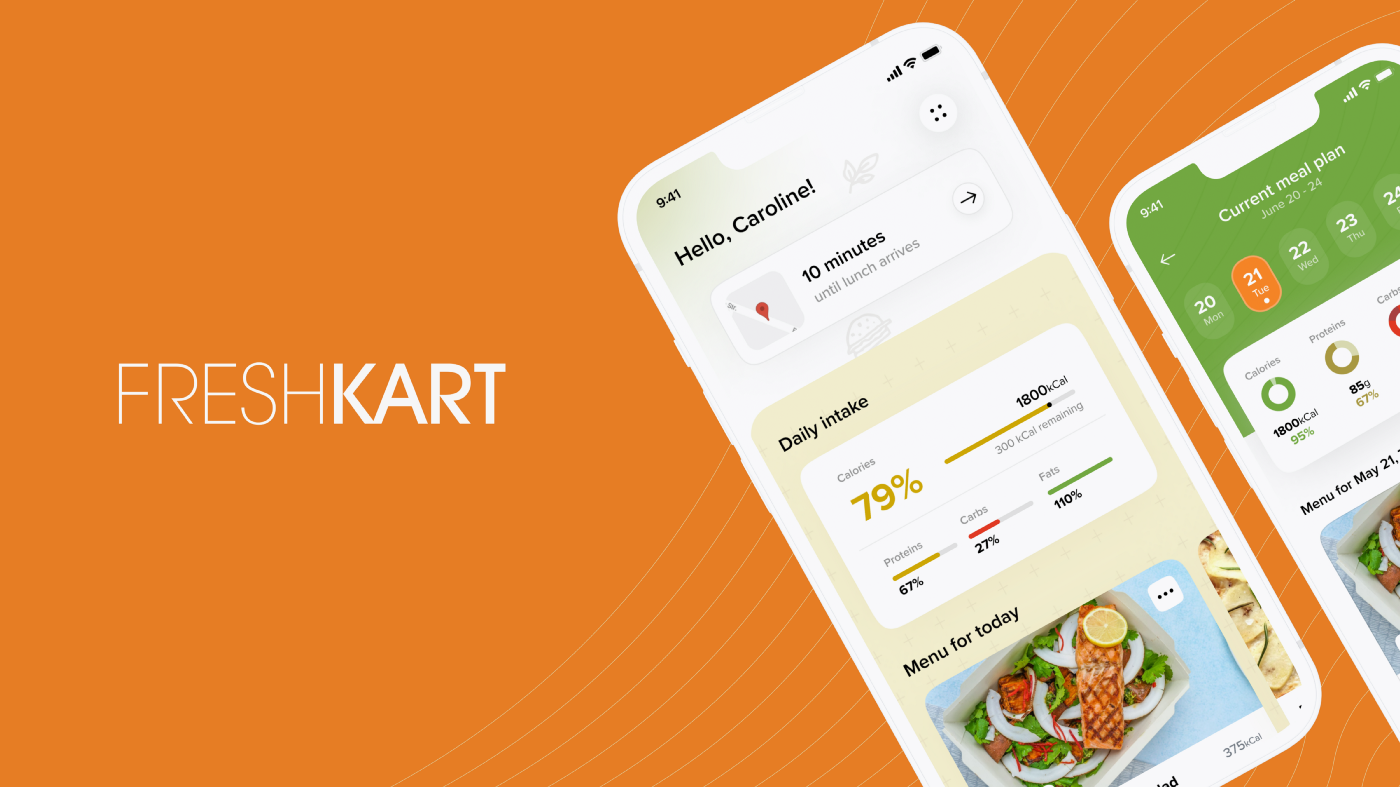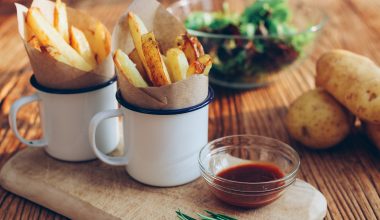If we have to put one single KPI for human life, it has to be Healthy Life Expectancy which is the amount of time we live free of diseases.
Though we have made significant improvements in the last 100 years, our average healthy life expectancy is still ridiculously low at 63 years globally. It is high time we shift our focus and work towards pushing this number higher.

There are multiple factors that influence healthy life expectancy but the following are the most important:
- Food
- Fitness
- Early diagnosis of diseases
Among the factors, food is a low-hanging fruit and has the highest impact. Just making changes to our diet can help us live longer.
The Problem:
Even if you decide to eat healthy, most of us,
a) don’t have the knowledge to put together a balanced meal
b) don’t have the time to shop for groceries, cook and clean.
In a fast paced world, we tend to settle with three or four recipes that we know and repeat them through a month, missing out on consuming meals that are rich in nutrients in some cases, missing out on essential vitamins and minerals that our body needs to function.
What about delivery services? If you take any city in the world, delivery services like Deliveroo and Uber are skewed towards fast food and healthy food options are <1% of their overall menu. Infact, some of them had fast-food burger joints listed under ‘healthy’ category until recently.
We traveled to multiple cities trying to live on online deliveries and we found that there is no single reliable global service provider for our healthy/daily food needs.
Creating a new category:
Before on-demand food delivery companies like UberEats, Deliveroo and the likes came into being, in addition to cooking at home, we visited restaurants say once every two weeks to indulge in great tasting food — we indulge without caring for calories or nutritional content. On-demand food delivery companies brought this experience home, helping you indulge staying at home without having to dress up to get to a restaurant. Easy availability resulted in us replacing our daily food with the ones that we used to occasionally indulge in.
The current food market should be segmented into the following for us to have clarity on the intended end result:
a) indulgence food
b) daily food
We have plenty of options for indulgence food but very few for daily food. Most of us have about 14 to 21 meals in a week excluding snacks. >90% of this falls under the ‘daily food’ category considering one or two ‘indulgence meals’ a week.
We strongly believe that there would be 3 to 5 global players that would emerge in the ‘daily food’ category in the next five years.
Freshkart:
At Freshkart, we are building a vertically integrated system where we deliver fresh, healthy cooked meals every day based on users’ nutritional needs, wherever they are within our operational zones.
Tell us what your food preferences, fitness goals, delivery location, time slot and our recommendation engine will suggest the right meal for you. On a weekly subscription, we will deliver fresh cold/warm meals at your doorsteps. For ex. you can get your lunch at work and dinner at your home.
In order to ensure that food arrives on time and to maximise the deliveries we make in an hour, we unpacked the 150yr old Dubbwala delivery model in Mumbai and built a routing system which we launched in August.

We are a set of diverse, repeat founders (Chitra, Lehel and Prabin) that came together to build Freshkart, focussing on solving a problem that many aren’t focussing on right now.
Launch:
We are launching today in Brussels, with deliveries starting from 12th September. Right now, we are invite-only with limited delivery slots. If you would like to get a slot, join our waiting list and download our app.
Looking forward to delivering healthy meals in multiple cities soon!
Thanks to our Freshkart team, early backers, beta testers and contributors who believed in our mission — without you, this won’t be possible.






